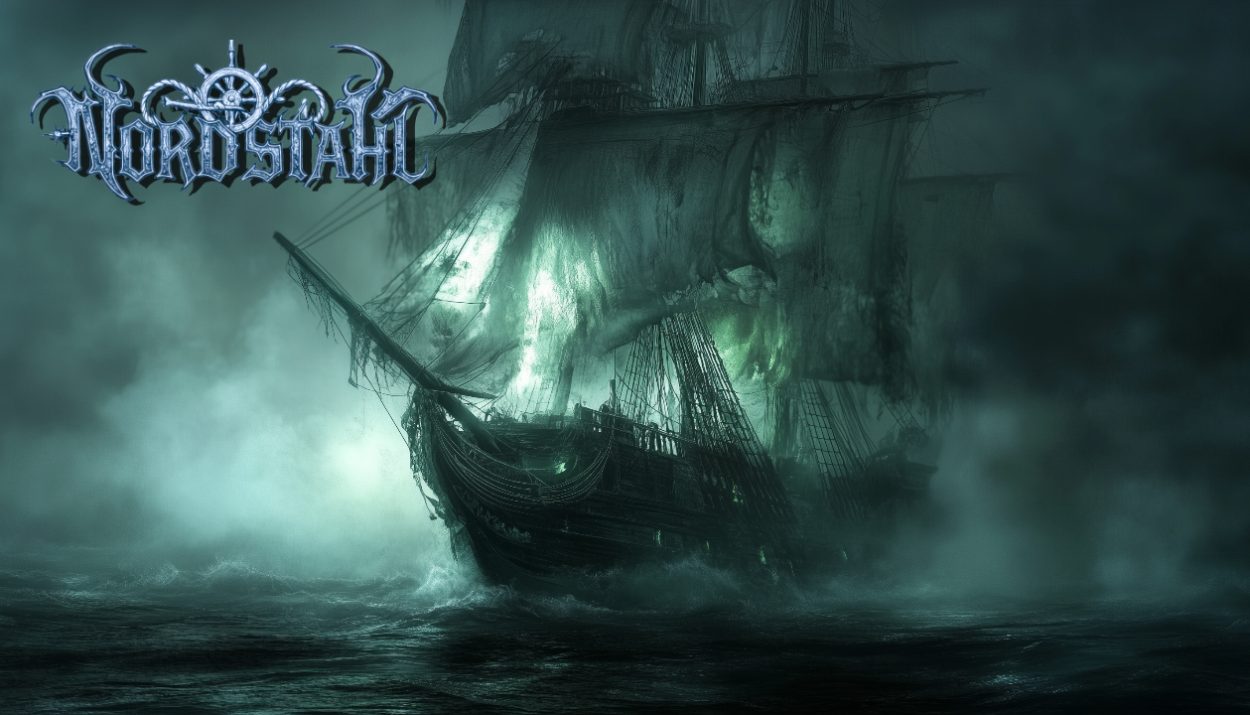When it comes to artists who refuse to create songs and instead craft entire experiences, Nordstahl belongs to that lineage. Emerging with a timeless and necessary presence, he is not simply another voice in the crowded music landscape but a storyteller, a conjurer of atmospheres, and in “Das Geisterschiff,” he steers us directly into the fog of our mistakes and the eternal toll they carry. This is more than just a German-language track; it is a darkly poetic meditation that stays even after final notes.
“Das Geisterschiff” is steeped in centuries-old maritime folklore, drawing from the myth of the Flying Dutchman but pushing it into new territory: one where the ghost ship is no longer just legend but a metaphor for spiritual abandonment, irreversible choices, and the kind of regrets that gnaw at the soul. Nordstahl captures this narrative with chilling precision. His lyrics paint vivid images—broken oars, torn sails, endless fog—that mirror the weight of unchangeable pasts. The refrain, “Nichts kann ändern, was einst war” (“Nothing can change what once was”), becomes the song’s anchor, at once a curse and a truth that cannot be ignored.
Vocally, Nordstahl delivers with a gravitas that matches the song’s subject matter. His voice is inhabited. There’s a rawness in his timbre, an almost weathered quality, like he himself has sailed these waters of regret. His delivery balances restraint with intensity: the verses carry a cold, whispered intimacy, while the refrains ring out like a tolling bell, echoing across an endless sea. The bridge, where he declares “Gott ist fern, es herrscht das Tier” (“God is distant, the beast reigns here”), is chilling—his voice deepens, almost breaking into a cry, giving the moment a visceral impact that makes the listener’s heart sink.
Instrumentally, the track is a masterclass in atmosphere. Production leans into stark contrasts: brooding strings and low drones form the undercurrent, evoking the ceaseless pull of dark waters, while percussive strikes echo like distant thunder, suggesting both inevitability and doom. Subtle guitar lines drift in like ghostly silhouettes, never overpowering, but always present, while layered synth textures cloak the song in fog. Each sonic element is meticulously placed, creating a soundscape that feels vast and oppressive, as though the listener is truly adrift on an endless ocean.
The production avoids unnecessary gloss, instead embracing a raw, cinematic quality. Silence and space are wielded as instruments in themselves, allowing Nordstahl’s voice and words to carry maximum weight. The mix is balanced so that the vocals sit at the forefront, commanding attention without overshadowing the ghostly, maritime backdrop.
In “Das Geisterschiff,” Nordstahl does not just give us a song; he offers us a mirror, cracked and fogged, reflecting back the mistakes we cannot undo. And in doing so, he reaffirms his place not only as a musician but as a craftsman of modern myth. Welcome Nordstahl aboard—though his music may chart courses through darkness, it is precisely in these depths that his artistry shines brightest.
Listen to ‘Das Geisterschiff’ on Spotify






